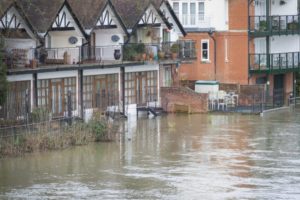Special to the Financial Independence Hub
Insurers look at historical data, as well as real and perceived risks when calculating your insurance premium. If we dig a little deeper, we can identify specific factors that affect the price you pay for home and car insurance. Even better, we can determine which of those particular factors can help you save money and get you closer to financial independence.
Car Insurance Rates
Factors beyond your control
Age: There are certain factors that you can’t change: like your age. A younger driver will pay more for car insurance because, with less experience on the road, there’s a higher chance of an accident. Historical statistics have proven time, and again that younger drivers take more risks than more mature drivers.
Location: Where you live affects your insurance premium, so unless you’re willing to move, there’s not much you can do. Specific location factors that impact pricing are: number of accidents, levels of fraud, the value of claims, theft & vandalism, as well as climate considerations. For instance, if you compare Ontario car insurance quotes vs. Alberta car insurance quotes you might find, all things being otherwise equal, that Albertans pay less for car insurance. The reasons for the cheaper pricing could be any number of reasons from lower claims volumes to population density.
Factors you can use to save money
Your Car: It should come as no surprise that the more expensive the vehicle, the more it will cost to insure. We don’t have to compare Maseratis to Civics to find better pricing though. The Insurance Bureau of Canada (IBC) uses the Canadian Loss Experience Automobile Rating, or CLEAR table, to determine how cars may be rated differently when calculating their insurance premiums. Use IBC’s How Cars Measure Up Guide and browse for vehicles with lower collision or comprehensive claims that will result in lower insurance premiums.
Your driving activity: This point is three-fold. If your general driving activity is safe, if there are no accidents, no speeding tickets or other major offences on your record, you’ll save money on car insurance. Your driving history, or the longer your driving activity is free and clear of any blemishes on your record, the more your insurer will reduce your monthly payments. Finally, how much you drive will affect your premium. The more you’re driving on the road, the higher the risk of an accident, and the more you’ll pay for car insurance. If you can walk, take public transit, or shorten your overall commute, the more you’ll save on car insurance.
Level of Coverage: To pay the least amount of car insurance, you can opt for the minimum coverage if you own your car outright, but keep in mind, this exposes you to significant costs should you be in an accident.
For instance, you can opt out of collision insurance which protects your car against damages sustained in a crash. You can decide against comprehensive which protects your vehicle against damages from events not related to driving, like a tree falling on your car after a storm. You can also choose to only take the minimum third party liability allowed in your province. This puts most of the risk on you though, and if anything does happen, you’ll probably be paying much more than your monthly premium.
Higher Deductible: A quick and easy way to pay less without touching your coverage is to increase your deductible. The deductible is the amount you pay after being approved for a claim, but before the insurance company will pay their portion up to the limit specified in your policy. If you increase your deductible from $500 to $1000, this is a signal to the insurer that you’re taking on more risk, and they’ll reduce your premium accordingly. Continue Reading…




